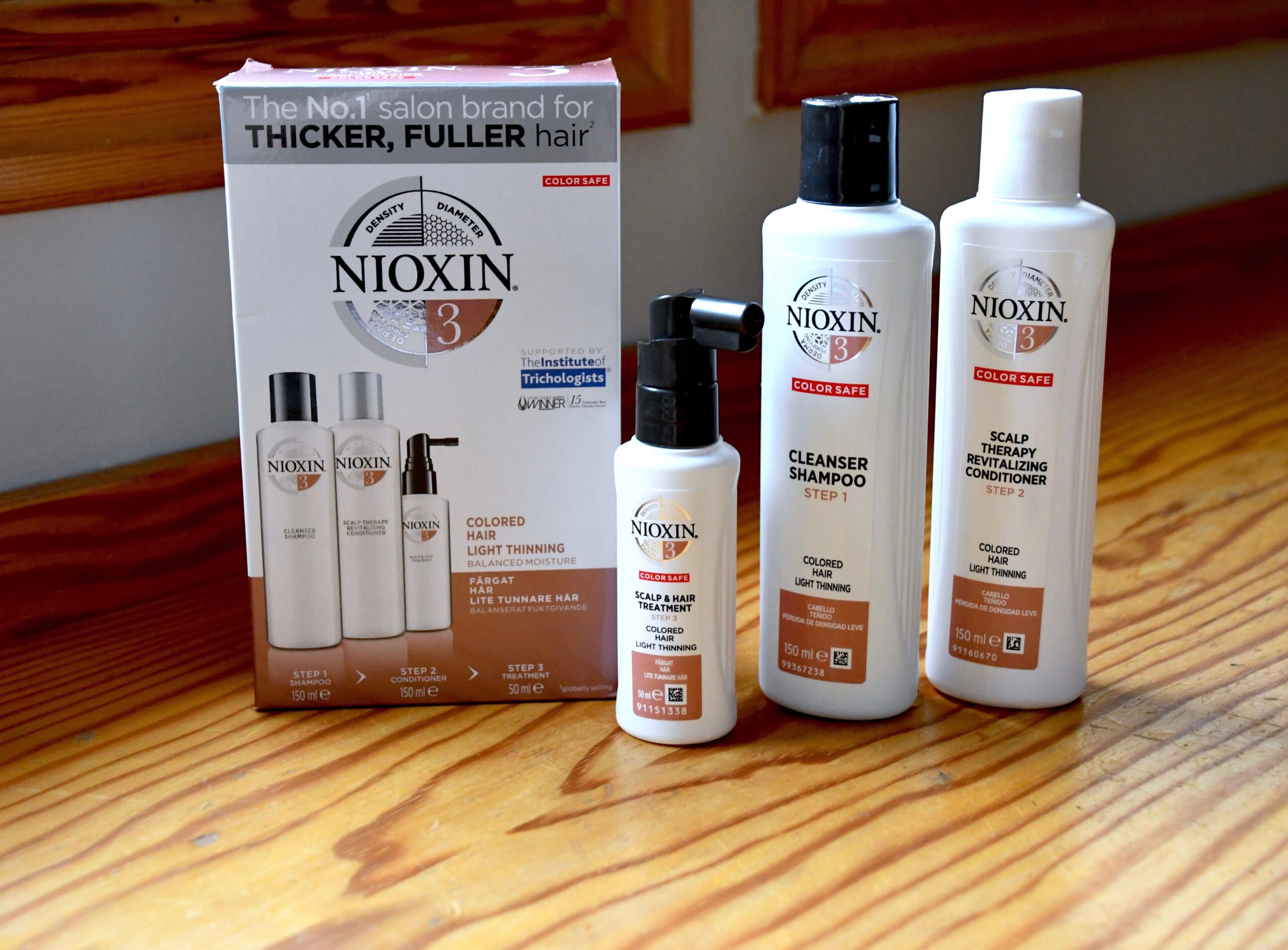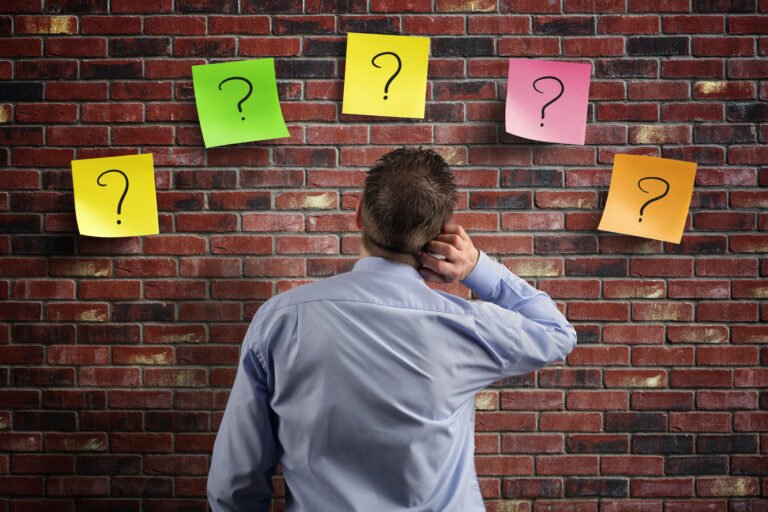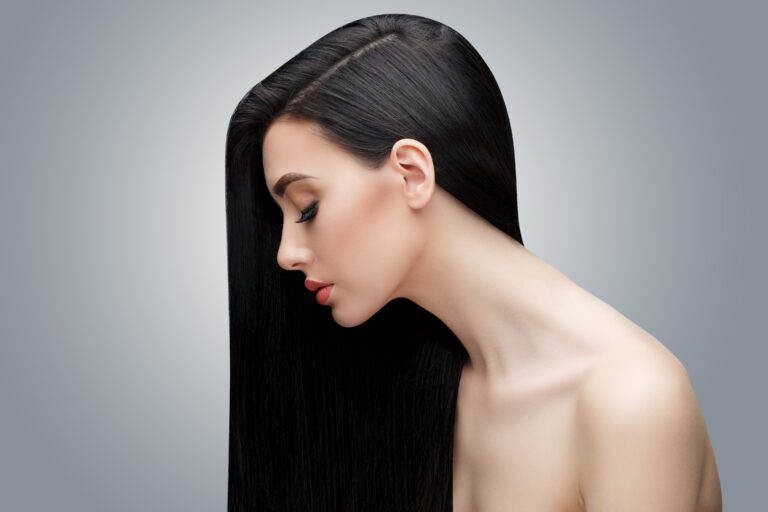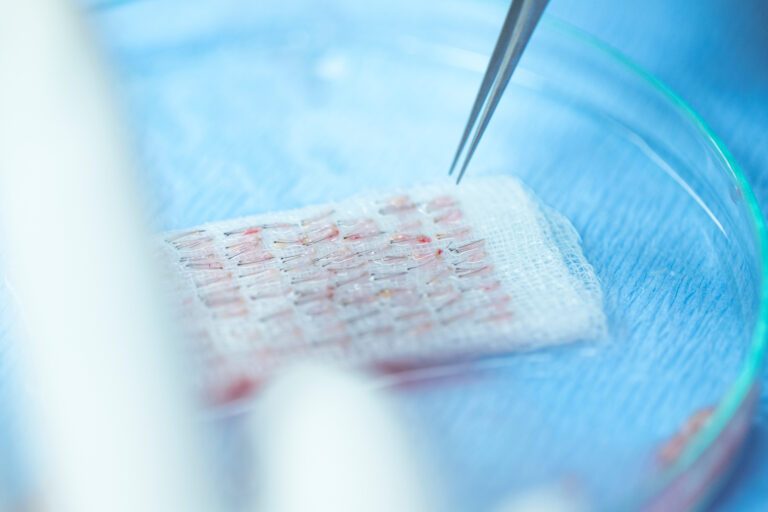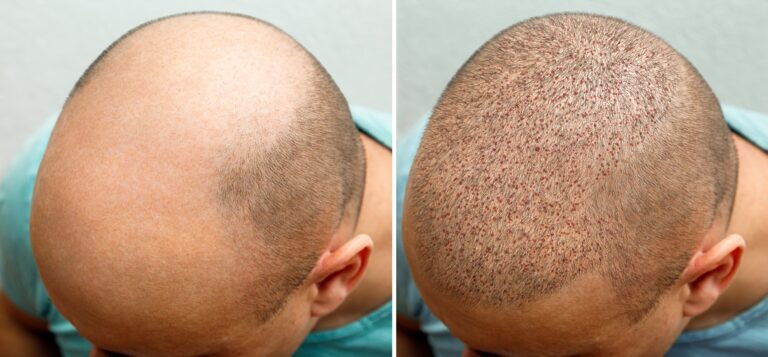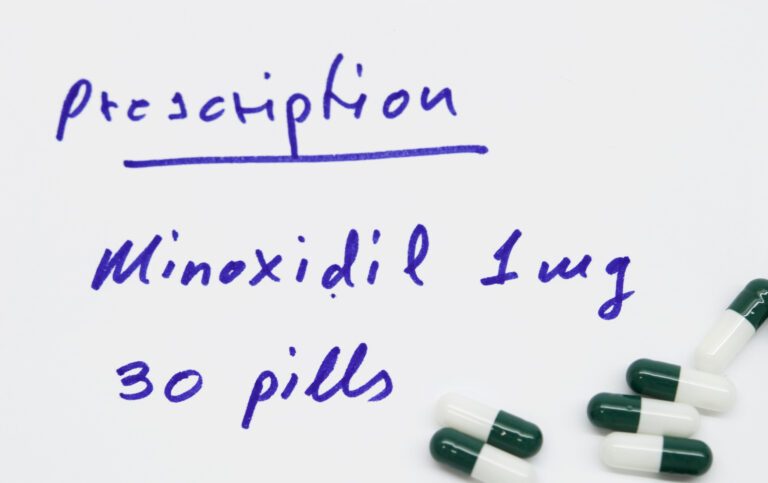Nioxin For Hair Loss: Does It Work & Is Better Than Rogaine?
Losing your hair can feel as if you’re losing a part of yourself. It’s a frustrating and emotional experience for people and can affect anyone.
Thankfully, there are many medications available that allow you to delay or reverse the development of your hair loss.
Two of the most widely used hair loss products are Nioxin and Rogaine. If you’re dealing with hair loss, which one should you use?
In general, both products have the goal to treat hair loss. They both have unique functions and advantages.
In this article, we’ll compare Nioxin to Rogaine and explore the differences between the two treatments.
We’ll also go over the potential adverse effects and factors to consider when determining the suitable treatment for your hair loss needs.
Rogaine vs Nioxin
Rogaine is an FDA-approved drug prescribed for treating hair loss. This drug, when administered topically, can dilate blood vessels, which helps stimulate follicle function and promote hair growth.
Additionally, Rogaine comes in two variations: foam and liquid, which are usually applied twice daily on the scalp.
On the other hand, Nioxin is a brand that offers shampoo, conditioners, and treatments to enhance the overall health of your scalp. It features a combination of minerals and vitamins designed to lessen inflammation, enhance scalp blood flow, and support healthy hair regrowth.
Although both Nioxin and Rogaine are used to manage thinning hair, their treatment approach is different.
Specifically, Rogaine is meant to promote hair growth, while Nioxin is recommended for hair thickening.
Hence, Nioxin is a more effective solution for simple hair loss, whereas Rogaine works best on a more serious condition such as androgenic alopecia.
However, neither Rogaine nor Nioxin is suitable for everybody. Besides, they might not work for all kinds of hair loss problems.
So, if you suffer from hair loss, it’s best to consult your doctor or a hair loss specialist. This way, you’ll know the root cause and be able to create a suitable course of action.
Nioxin for Hair Loss
Is Nioxin effective in treating hair loss? The answer is both yes and no.
Clinical studies have shown how minoxidil improves hair growth. Hence, Nioxin claims that its products may prevent breakage-related hair fall by as much as 91%. Additionally, 85% of Nioxin consumers who used the System 2 kits noticed a thickening effect on their hair.
However, Nioxin may or may not be as effective as Rogaine in treating hair loss depending on the patient’s condition. Some people may notice positive changes in their hair’s condition and volume, while some failed to see any changes at all after using Nioxin.
While Nioxin is an FDA-approved drug, this treatment isn’t a prescribed medication for hair loss. To add, it could be ineffective for all sorts of hair loss problems, such as male and female pattern baldness.
On the contrary, Nioxin contains active ingredients like Serenoa Serrulata (saw palmetto), vitamin B7 (biotin), vitamin B5 (panthenol), peppermint oil, and vitamin B3 (niacin).
Most of these active substances have been scientifically connected to increased hair growth. For instance, experts discovered that saw palmetto can help in promoting hair growth in men with androgenic alopecia.
Additionally, Vitamins B3, B5, and B7 have been linked also to hair health. According to the Journal of Cosmetic Dermatology, niacin derivatives tend to enhance hair volume in women.
Beyond Nioxin Active Ingredients
Nioxin may also deliver hair loss treatment in a minoxidil-containing regrowth solution.
Minoxidil widens blood vessels in your scalp to enhance blood flow to your follicles and promote new hairs.
In addition, minoxidil can improve the overall hair condition and look when combined with other hair treatments, such as those marketed by Nioxin.
Above all, Nioxin products containing minoxidil are most likely to generate significant results compared to the rest of Nioxin’s system kits.
Nioxin offers two forms of minoxidil: a 5% formula for men and a 2% concentration for women.
Nioxin Reviews: Consumer Reports
Consumer reports regarding Nioxin products have been very positive. These reviews can be seen on the company’s website.
Not only that, but Nioxin’s best-seller also garnered over 20,000 global ratings on Amazon, which claims that the products make their hair look “fuller and thicker.”
Aside from that, some people commented that their hair strands were volumized, and patches on their crowns were filled in. More importantly, the shedding has stopped, and they’ve regained their self-esteem.
As opposed to the positive comments, users with fine hair report that they experienced breakage and increased hair fall. “This horrible product made my hair dry and made it fall off.”
Another reviewer said, “I bought this for my elderly mother and there are a lot of side effects associated with the ingredients, and you have to use a lot of this for it to even possibly work.”
These instances suggest that Nioxin isn’t suitable for everyone. The treatment’s efficacy lies in the user’s overall scalp health and age.
To sum up, most of the comments are between four and five ratings. The hair regrowth results received 61% favorable ratings for the 5% concentration and 64% for the 2% variant.
Nioxin Dermatologist Reviews
Nioxin products are somewhat debatable among dermatologists. Despite this, minoxidil is still on the top list of dermatologists for treating patients who suffer from hair loss or thinning. Given its active ingredients like biotin and niacin, they believe Nioxin can stimulate hair growth.
According to Dr. Caroline Robinsons, the first step in treating hair loss and hair thinning issues is to recognize the problem.
One of the most impactful things you can do at home is to prioritize scalp care. The main principle of Nioxin is the health of your scalp directly impacts the health of your hair.
An example of this is Dr. Joshua Zeichner, a dermatologist in New York City, who said “I have seen positive results in my patients who use Nioxin products consistently.”
To add, Dr. Greeta Yadav said that minoxidil-containing products like Nioxin are excellent for patients who started to experience slight hair shedding or hair thinning.
On the other hand, you have to take extra caution when using these hair growth products. Since there’s insufficient evidence that these products can inhibit DHT, these treatments may cause your follicles to shrink, which results in male and female pattern baldness.
“I find it very difficult to believe that something that’s applied to the scalp and rinsed off is going to have any appreciable effect,” says Dr. Evan Rieder of Weiser Skin.
Likewise, age plays a huge role in Nioxin’s effectiveness. According to Dr. Yadav, it proves to be more successful if taken before the age of 40, “because treating androgenic alopecia as early as possible can often be essential in achieving results.”
Predominantly, internal and external factors are causing hair loss. Using Nioxin products alone won’t fix all sorts of hair loss problems.
To identify the deeper cause of hair loss while creating suitable treatment plans, we recommend speaking with a dermatologist.
What Are Nioxin Minoxidil Side Effects?
Here are the side effects that people could experience during the treatment:
- Skin Irritation
Some patients tend to develop skin irritation while using minoxidil in high dosages for an extended duration. Since minoxidil is a vasodilator, it may trigger irritation and swelling when used topically. This might result in symptoms like itching and flaking.
Furthermore, some patients may be allergic to one of the minoxidil’s active ingredients or to minoxidil itself. This may result in more serious reactions such as:
- Hives
- Swelling of ankles, mouth, eyes, hands, and lips
- Breathing difficulties
To minimize the risk of irritation, here’s what you need to know.
- Only apply the product as prescribed
- Avoid direct eye contact
- Wash your hands after application
- Unwanted Hair Growth
Minoxidil functions by activating your hair follicles. However, it can also promote hair growth in areas you shouldn’t have excessive hair, like the face, arms, and back.
Additionally, women are more prone than men to experience this adverse effect. Specifically, it’s common in those who take minoxidil in high amounts. Sometimes, people who have been taking this medication for a while are also affected.
Usually, these unwanted hair growths are reversible and will subside after discontinuing this medication.
If the unwanted growth persists after a few months, you should see your doctor. They may suggest changing your dosage or switching to an alternative treatment.
- Dizziness or Lightheadedness
Minoxidil could trigger a drop in blood pressure, particularly if you take excessive amounts or possess a preexisting heart condition.
You may experience lightheadedness, dizziness, or fainting whenever your blood pressure decreases.
In this case, we recommend speaking to your doctor or seeing a specialist to monitor your blood pressure. It’s crucial to ensure that the blood pressure doesn’t fall below normal while taking minoxidil.
- Chest Pain or Irregular Heartbeat
Minoxidil can cause chest pain (angina) and irregular heartbeat. Although rare, both need immediate medical intervention.
Minoxidil, as a vasodilator, may contribute to the cause of blood pressure drop. When this happens, it can strain your heart and cause chest pain.
Rarely, minoxidil may induce fluid buildup around the heart, leading to chest pain and breathing difficulties.
- High Blood Pressure
Historically, minoxidil is used for treating hypertension together with other drugs. It falls into a drug category known as vasodilators. This component relaxes the arteries, allowing blood to flow freely throughout the body.
However, hypertension is a common problem that, if left untreated, might cause damage to these organs:
- Heart
- Brain
- Kidneys
Hence, dysfunction in these organs can result in cardiac arrest, stroke, kidney failure, blurred vision, and kidney failure.
If you experience or continue to experience chest pain while taking minoxidil, contact your physician right away. They might recommend other medications as part of your treatment.
Alternatively, don’t quit using these drugs unless advised to do so by your physician.
Summary
Nioxin vs Rogaine comparison relies on your situation since both are designed for various target groups.
In general, Rogaine has been proven to assist in hair growth. While Nioxin doesn’t promise to regrow hair; instead, it strengthens and extends the life of your hair.
Additionally, it’s crucial to check whether the product has scientific evidence showing its effectiveness.
Ultimately, if you have thin locks, Nioxin could be your best friend, while if your hair thinning turns to increased hair fall, Rogaine is the way to go.
Either way, always check with your doctor before taking new drugs, like Nioxin and Rogaine.

